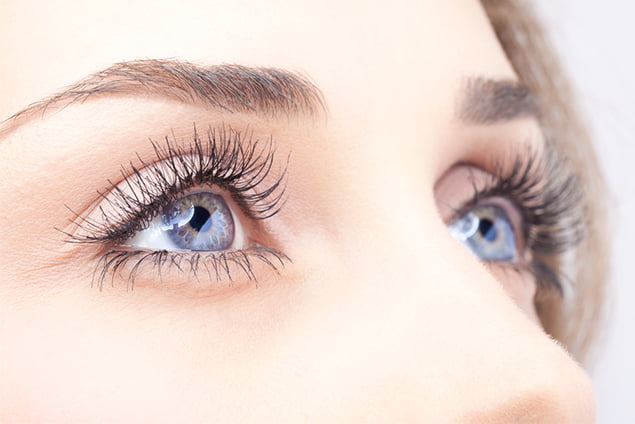Reducing Eye Floaters With Laser (Vitreolysis)

This article details the options for reducing eye floaters using laser surgery. If you’d like more information, please get in touch.
Have you ever experienced tiny specks or “strings” that float in and out of your field of vision? These are known as “eye floaters”. Eye floaters are elusive. They form inside the fluid of your eye and move as your eyes move. If you try to look right at them, they dart out of your vision.
Patients at our practice get special help treating this condition thanks to advanced laser technology and the expertise of Dr James Genge.
The what & why of eye floaters
When light passes from the front of the eye (the cornea and the lens) to the back (the retina), it passes through the vitreous humour, a jelly-like substance inside your eyeball. Changes to the vitreous humour can lead to eye floaters.
Vitreous opacities, the medical term for eye floaters, are a common problem. As we age, the vitreous begins to liquefy and the inside of the eyeball becomes crowded with debris from this process. Despite their name, floaters have a tendency to sink toward the bottom of the eyeball, in whichever way the eyeball is oriented.
Help for patients with eye floaters
It is estimated that seven out of ten people will experience eye floaters at some time during their lives. Previously, there were two treatment options for reducing eye floaters available:
- Observation – Floaters were monitored with a wait-and-see attitude, as many will spontaneously disappear and need no treatment. Unfortunately, this approach leaves patients to suffer the annoyance caused by eye floaters until it can be determined whether further action is necessary
- Vitrectomy – This surgery removes some or all of the vitreous humour and all the floaters it contains. The problem: Even in the best of hands, vitrectomy has a high rate of significant complications.
While these two strategies have helped millions of people around the world, Freedom Eye Laser is proud to offer the next generation of treatment with a process known as Laser Vitreolysis.
This revolutionary in-office removal of eye floaters is possible thanks to our YAG laser.
The YAG laser for eye floaters
Laser Vitreolysis, also known as “floater laser treatment” is a pain-free procedure that reduces the visual disruptions caused by eye floaters.
Laser Vitreolysis with the YAG laser is:
- Effective for appropriate cases.
- Performed as an in office, outpatient procedure.
- Non-invasive (all external, non surgical).
- Highly targeted (removes the floaters, not the vitreous).
- Pain-free.
- Safer than other options with a low complication rate.
- Fast (20-60 minutes per treatment, with two treatments needed on average).
- Full recovery in 24 hours.
- Less expensive than surgery
Eye floaters disappear with the YAG laser
With the help of a nano-pulsed ophthalmic YAG laser, Dr Genge vaporises the vitreous strands and opacities that our patients experience as eye floaters.
A variety of things can add to the complexity of reducing eye floaters with laser treatment: the location of the floaters, the size of the floaters and their nature. Dr Genge is an expert in this technique, giving Freedom Eye Laser patients an added level of confidence and comfort.
Note: It is very important to emphasise that not all floaters are amenable to the Laser Vitreolysis. The discrete “Weiss Ring” from a posterior vitreous detachment is the most appropriate for treatment. Large diffuse cloudy floaters are not treated with Laser Vitreolysis as they can not be adequately reduced and a surgical vitrectomy is the only effective solution. Dr Genge will objectively inform you regarding your suitability on evaluation and will only proceed to treatment if you are a good candidate.
If you would like to read the clinical Whitepaper produced by Ellex, click here.
If you’d like to know more about YAG laser-enabled eye floater treatment, contact us today for a consultation 02 9981 1771.



